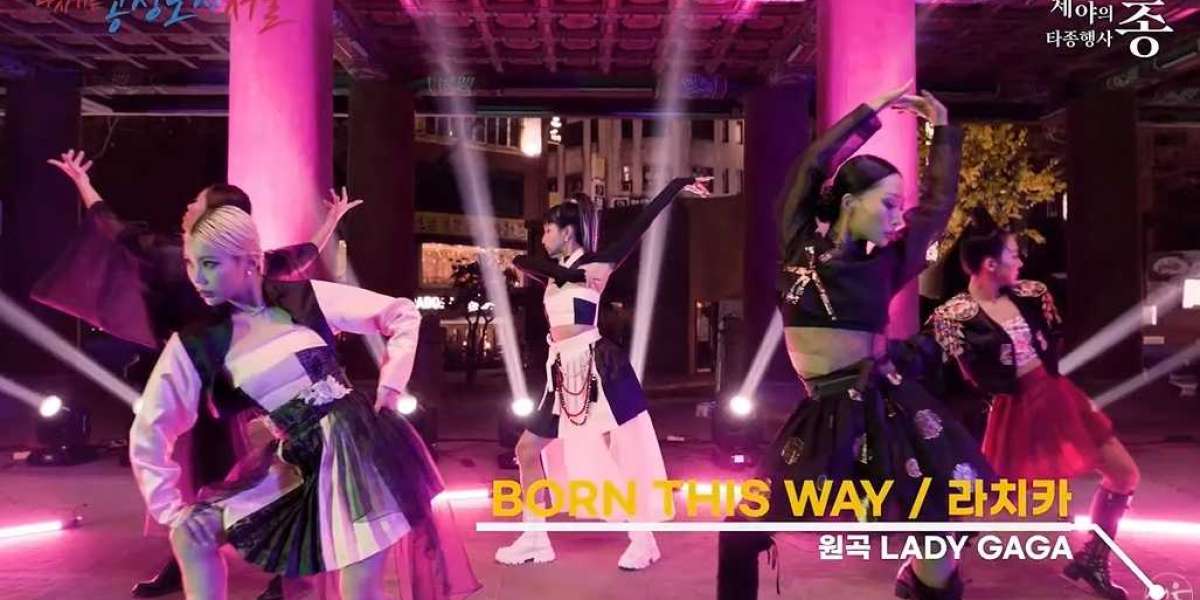In a New Year's Eve performance, a South Korean group performed Lady Gaga's LGBT anthem "Born This Way," but one of the lyrics was missing. The performance sparked outrage, with some experts labeling it "LGBT erasure."
Earlier this year, local television broadcasters were criticized for cutting out kissing scenes between two men in the Freddie Mercury biopic "Bohemian Rhapsody," which was released in theaters last year.
When the Seoul Metropolitan Government held its annual year-end bell-ringing ceremony, which was broadcast live on YouTube and city-funded broadcaster TBS, dance group Lachica delivered a performance that included a short version of "Born This Way," a hit single by Lady Gaga that peaked at the top of the charts in 2011.
Even as many viewers applauded their performance, some — mostly members of the LGBT community — pointed out that a crucial lyric was missing: "No matter whether you're gay, straight or bi, lesbian, or transgender."
As a musician, Lady Gaga has received a great deal of support from members of the LGBT community since her debut. Born This Way is the most popular gay anthem of the decade of the 2010s, as well as one of the most significant songs in pop music history for the LGBTQ community," music critic Jung Min-Jae told The Korea Herald.
"Given the fact that the most important lyric of the song was left out, it is understandable that people are upset," he continued.
According to a senior Seoul city official, who spoke to The Korea Herald, the local government was not involved in the decision to remove the line from the video.
"We were not involved in the decision. According to the official, "we hired an outsourced company to deliver an uplifting year-end show and were recommended Lachica."
Members of Lachica have been contacted for comment on this matter.
In October, the team collaborated with singer Jo Kwon to perform a similar version of the song for Mnet's dance survival show "Street Woman Fighter" on the network.
Despite the short amount of air time allotted to the dance group, a source close to the show told The Korea Herald that the song was presented in its original form by the dance group.
Despite the fact that it is still unclear why the song's crucial lyrics had to be removed in the first place, Kim Ji-hak, the director of the nonprofit organization Diversity Korea, said the incident is the latest example of "discrimination" against sexual minorities in Korea.
"There are still attempts to filter out or erase the identities of sexual minorities from the media in South Korean society," says the author. During the Lunar New Year holiday, kissing scenes between men were edited out of "Bohemian Rhapsody," which was broadcast on HBO.
However, a kissing scene between a straight couple was shown on television at the time. The move drew criticism from the National Human Rights Commission of Korea, LGBT rights organizations, and even Adam Lambert, a guest vocalist with the rock band Queen, who expressed his displeasure with the decision.
An SBS representative stated that the broadcaster attempted to take into consideration much of the criticism. "According to some members of the Korea Communications Standards Commission, rules must be updated to reflect the current environment. The second screening was not scheduled during a prime time period in order to ensure that as little editing as possible was done, according to the official, who was referring to the country's media advisory body.
In 2015, the Korea Communications Standards Commission (KCSC) issued a warning to a JTBC drama series called "Schoolgirl Detectives" due to a kissing scene between two female high school students.
As Kim pointed out, "in the subtitles, they also went with the literal translation of a lyric about drag queens and simply translated it as "don't get drag," as if they had no concept of what a drag queen was."
It was clear that they wanted to consume popular cultural content, but there was no message of diversity and acceptance for sexual minorities to be found.
Minsoo Kim, a queer photographer, agreed with the sentiment.
"When the performance was broadcast on Mnet, it was referred to as a song for freaks.' This is something close to censorship of sexual minorities," the photographer claimed, pointing out that the interpretation was repeated without hesitation.
Jung, on the other hand, believes that it is critical to understand both the causes and the consequences of the controversy surrounding Lachica's performance of "Born This Way."
There does not appear to be a problem if the Seoul city government simply allows Lachica to perform at the same level as the group has been doing in the past.
"It's also worth noting that when the team performed the song on Mnet, they did so with gay dancers on stage, demonstrating that they did not completely disregard the song's message."
In recent years, the Seoul municipal government has been accused of discriminating against sexual minorities on a number of occasions.
Seoul's own human rights commission ruled in November that the city's refusal to grant the Seoul Queer Culture Festival Organizing Committee's application to establish a non-profit foundation constituted "discrimination against sexual minorities without a reasonable cause" and "an infringement on their freedom of association."



